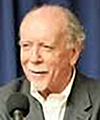 |
| Don Bates |
Every profession needs codes of conduct to help ensure the credible performance of its members. The public relations profession has several codes aimed at building and sustaining positive behavior (four are listed below), but none of them addresses how practitioners must write for PR and related business purposes.
The accompanying voluntary “Public Relations Writer’s Code of Conduct” was created to fill this gap. It reflects the know-how of leading authorities on writing both within and outside the PR and marketing communication fields. These experts include writing teachers, trainers, managers, consultants, editors, and journalists who care most about writing well in business, government, and nonprofit endeavors. Writing is too important to the conduct of PR work not to have a set of rules summarizing how it should be applied.
More concretely, this code summarizes best principles and practices for writing strategically on behalf of clients and employers (hereinafter employer/s). It explains how writing must be done to communicate employer goals and actions. It provides concrete ideas to follow. Its goal is to improve PR writing’s quality, content, and value. Its advice is evergreen. Its time has come.
Make a difference, spread the word
To amplify this code’s usefulness, it should be shared among PR practitioners in all organizations and at all levels. No one is immune to the challenges that writing presents regardless of their level of competence.
Actions that can be taken now
• Display the code on your PR office and cubicle walls as a reminder to all employees of their obligation to write well.
• Link the code from your PR agency or department website so those you serve understand the implications of what and how you write.
• Give the code to new and prospective PR employees, so they understand the critical importance of writing simply, clearly, and ethically as part of their employment.
• Use the code to train all PR employees on how to write better in general and more specifically for PR purposes.
• Refer to the code as context for helping to measure individual and group performance annually.
Practically and philosophically, how we write reflects our personal and professional ethics, knowledge, and experience. Also, our desire to communicate effectively with other people in pursuit of employer objectives in keeping with the public interest.
This PR writer’s code provides a framework for achieving these ends, adding to and amplifying the professionally approved codes and standards of PRSA, IABC, the PR Council, and the Arthur Page Society. It should be part of this larger mix and part of every practitioner’s education and training. PR writing must be perfected, measured, and evaluated accordingly.
Public Relations Writer’s Code of Conduct
As professional public relations writers, we commit to applying common-sense rules of PR writing, regardless of the forms used or the purposes for which they are written. These rules affect the successful conduct of corporate government, consulting and nonprofit organization (hereinafter “employer/s”). They ensure PR writing remains a powerful tool for informing, educating and activating employers, stakeholders and target audiences. They embody the “Public Relations Writer’s Code of Conduct”
• Educate employers about what public relations writing is and can do for them.
• Know what employers want from what we write on their behalf.
• Understand the needs and desires of employers and their target audiences.
• Craft words accurately to build and sustain positive employer relations.
• Establish clear goals and objectives for all writing assignments.
• Build two-way communication between employers, the media, their stakeholders.
• Research topics with trustworthy online and offline sources.
• Develop PR messages that support employer vision, mission, goals, actions, brands.
• Write simply, clearly, directly, logically, credibly, transparently.
• Emphasize “big news” (the big story) of interest to employer audiences; deemphasize self-referential text of interest only to the employer.
• Write accurate, accountable, credible, actionable narratives.
• Disdain jargon, hyperbole, euphemism, gobbledygook.
• Concentrate on essential, not peripheral, content.
• Focus on FYA (for your action) not FYI (for your information) in all we write.
• Never lie or mislead in what we write, regardless of circumstances.
• Stress benefits in describing employer products, services, programs, issues, ideas.
• Evaluate the effectiveness of how and what we write, both in draft and final form.
• Invite, accept and appropriately apply criticism of our writing.
• Improve our writing with continuing study in PR workshops, courses, books.
• Adhere to preferred American journalistic standards for writing style and usage, i.e., annual Associated Press Stylebook.
Created and copyrighted January 2019 by Don Bates, APR, Fellow PRSA.
|
U.S. Codes of Conduct • Arthur Page Society • International Association of Business Communicators • The PR Council • Public Relations Society of America |
Don Bates, APR, Fellow PRSA, teaches public relations writing and management at New York University. He also teaches writing workshops worldwide. For over 40 years, he has handled PR for corporations, associations, and nonprofit organizations. He owned The Bates Company, Inc., an international PR agency, which he sold after 12 years. He has taught at Columbia University and the New School University and is founding director of the graduate program in strategic public relations at The George Washington University Graduate School of Political Management (GSPM), Washington, DC.


 Helga Ying, who is in charge of International AIDS Society’s offices in San Francisco and Oakland, is moving to Edelman as global and US chair of Purpose.
Helga Ying, who is in charge of International AIDS Society’s offices in San Francisco and Oakland, is moving to Edelman as global and US chair of Purpose.  Emmanuel Tchividijian, who was senior VP/chief ethics officer at Ruder Finn in a 20-year stint, has established
Emmanuel Tchividijian, who was senior VP/chief ethics officer at Ruder Finn in a 20-year stint, has established  Workplace diversity Issues, ranging from race to gender, have long been high profile threats to the brand. Ageism has been the exception - until now. (2 reader comments)
Workplace diversity Issues, ranging from race to gender, have long been high profile threats to the brand. Ageism has been the exception - until now. (2 reader comments) There's a battle for truth, in which people no longer share common facts and are unable to have a rational debate, Richard Edelman said during his speech at USC Annenberg School of Communication and Journalism on April 12. (1 reader comment)
There's a battle for truth, in which people no longer share common facts and are unable to have a rational debate, Richard Edelman said during his speech at USC Annenberg School of Communication and Journalism on April 12. (1 reader comment) A Baylor University study found that Millennial PR practitioners were unlikely to speak up when an ethical concern arises, while senior PR pros rely on “rational approaches” when it comes to ethics problems. (2 reader comments)
A Baylor University study found that Millennial PR practitioners were unlikely to speak up when an ethical concern arises, while senior PR pros rely on “rational approaches” when it comes to ethics problems. (2 reader comments)


 Have a comment? Send it to
Have a comment? Send it to 
No comments have been submitted for this story yet.